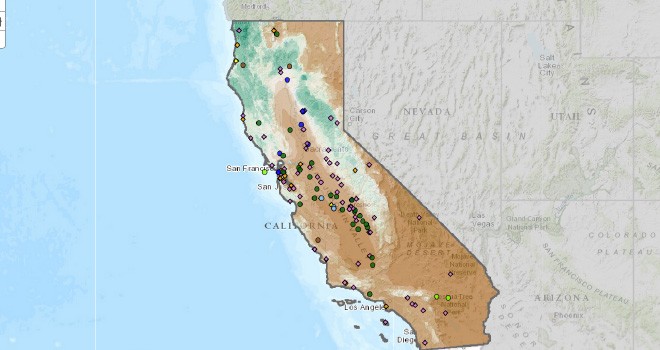
Stanford Students Create Interactive Tool to Showcase Story of Global Climate Change
As part of a biology course on understanding the geographic impacts of climate change, Stanford students have created an interactive online map that helps people visualize how global change can affect local communities. The tool relies on the power of first-person narrative and storytelling to convey individuals’ experience with climate change and specific ways it has impacted their lives.
The course—led by Stanford Woods Institute Senior Fellow Elizabeth Hadly, the Paul S. and Billie Achilles Professor in Environmental Biology—was developed in partnership with the Environmental Systems Research Institute and Stanford’s Community Engaged Learning program, which operates out of the Haas Center for Public Service. It helped connect students and instructors with stakeholders around California.
